Join us for conversations that inspire, recognize, and encourage innovation and best practices in the education profession.
Available on Apple Podcasts, Spotify, Google Podcasts, and more.

Candide traveled the globe on his quest to find the best of all possible worlds.
© 2010 Map Resources, All rights reserved.
You need a map of half the world to chart Candide’s journeys. Voltaire sent his hero to every trouble spot on the map in the 18th century, and even to an imaginary haven―El Dorado. Since this kingdom is imaginary, we have followed Voltaire’s lead and placed it somewhere in South America, with no further information. Voltaire wanted to expose hypocrisy and ignorance both at home, in Europe, and abroad, in Europe’s colonies. Candide ends up finding happiness in Ottoman Turkey―an ironic joke at Europe’s expense.
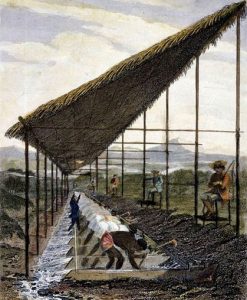
Africans are taken by force to Latin America, by Spanish and Portuguese traders.
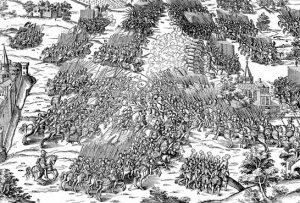
The French wars of religion between Catholics and Protestants claim tens of thousands of lives.
Mid-late 1500s — The first Jesuits enter Latin America.
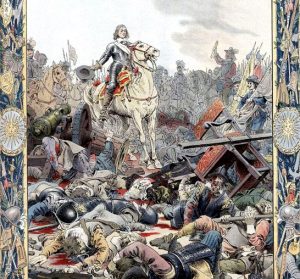
The Thirty Years’ War, between Protestant and Catholic forces, engulfs Europe and millions of lives, particularly in Germany, whose population may have decreased by 30 percent.
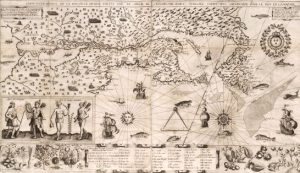
Jesuit explorers reach and claim what is now Canada as the French colony of New France.
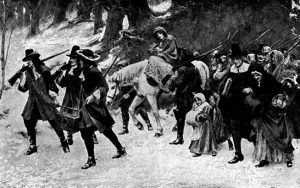
The Edict of Nantes, allowing Protestants civil rights, is revoked by Louis XIV; many tens of thousands of French Protestants (Huguenots) flee to England, the Netherlands, and other Protestant nations.
King William’s War, the first of three battles between France and England is fought in Canada and New England for control of North America; France wins.
Voltaire is born in Paris, France to a wealthy lawyer and the daughter of a member of Parliament; his given name is François-Marie Arouet.
Queen Anne’s War takes place, the second battle between France and England for control of North America; mixed results.
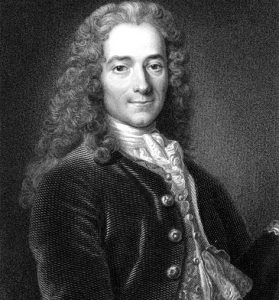
After Voltaire graduates from a Jesuit college, his father demands that he become a lawyer. Voltaire, however, aspires to be a writer.
Disgraced for trying to elope with a French refugee in the Netherlands, Voltaire is disinherited and threatened with banishment to the Americas by his father.
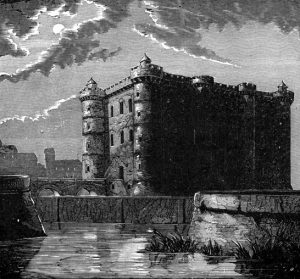
Voltaire is imprisoned in the Bastille prison in Paris, falsely accused of writing a satiric attack on the king. On his release, he publicly adopts the name Voltaire.
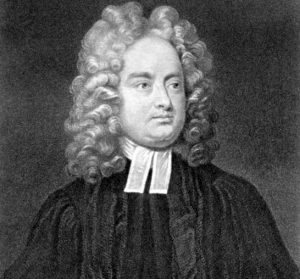
Voltaire is banished to England for his political satires. He meets Jonathan Swift and admires the British system of a constitutional monarchy.

Back in France, Voltaire publishes Philosophical Letters on the English, in which he states that Britain is more politically fair and upholding of human rights than France; the ensuing outrage forces him out of the country again.
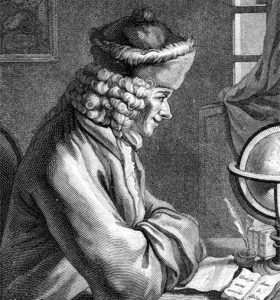
Voltaire lives in exile on the border of the French province of Lorraine, studying Newtonian physics and contemporary philosophy.
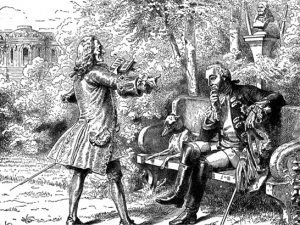
Frederick the Great, king of Prussia, invites Voltaire to live in his household and pays him 20,000 francs a year to write.
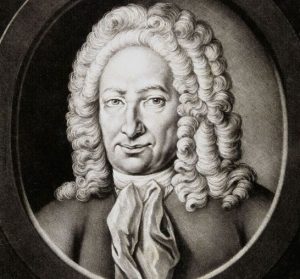
Voltaire is forced to leave Prussia when he writes a satire on the President of the Berlin Academy of Science that enrages the king.
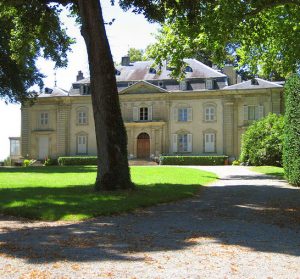
He lives in Geneva until that city’s law against theatrical performances leads him to Ferney, just over the border in France.
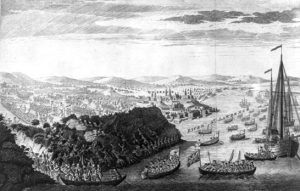
The French and Indian War is the last of the battles between France and England for control of North America; England wins.
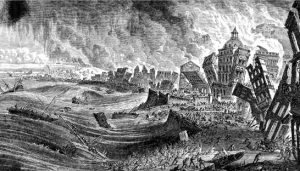
An earthquake that may have been a magnitude 9 hits the Portuguese capital of Lisbon; as many as 100,000 people die from the quake and the ensuing tsunami and fires.

Candide is published.
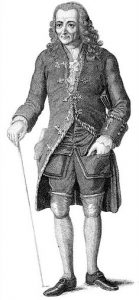
Voltaire returns to Paris to see the performance of his latest play, Irene. He is received as a hero. He dies on May 30.
Because of his rejection of the Catholic church, Voltaire’s friends hurriedly have him buried far from Paris before the church can announce that he is not to be given a Christian burial.
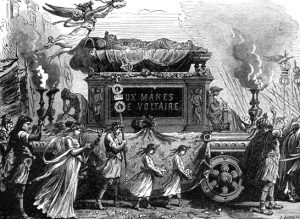
The French Revolutionary National Assembly has Voltaire’s body brought back to Paris for a triumphant re-burial in the Pantheon. Perhaps one million people attended the procession of his body through Paris.